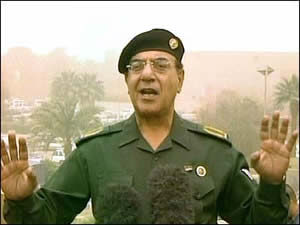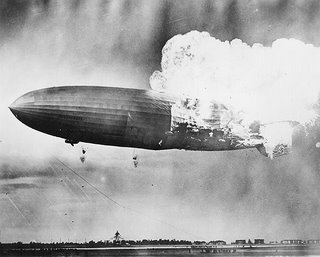It's the new campaign by Free TV (what the cabal of free-to-air broadcasters calls itself these days), and it even has its own web presence under the title Save My Sport. It's a cynical attempt to fend off new "Use it or lose it" legislation that would force free-to-air broadcasters to actually screen the sports (and other events) to which they buy rights... or else lose them.
"Save My Sport"? I say "Save Your Breath"!
"Last year," the campaign media release tells us, "Australian sports fans watched over 1648 hours of sport on free TV." What the release and the TVC conveniently ignore is the thousands upon thousands of hours of programming - including major sports and superbly-crafted, Emmy-winning fare treasured elsewhere in the world - that "Free TV" has rationed, buried, dumped, butchered and otherwise treated with utter contempt... and we, the viewers, with it.
Have you (like me) found yourself staying up till the early hours of Monday morning to watch first-run episodes of The Office (US version), winner of this year's Emmy for Best Comedy, wedged embarrassingly by Network Ten between ads for ringtones and mobile phone p*rn?
The litany of insults to the audience (and program makers) could run for pages (and often does in the Letters section of the Green Guide). Quality programming dumped after two weeks or banished to late night. Ground-breaking shows screened (first-run) at 4 am. Episodes of series with long story arcs screened out of order. Promos that contain "spoilers" (i.e. giving away key plot twists). Cutting PG-rated episodes of "The Simpsons" so they qualify for G classification, just so they could be promoted (not screened) in kids' viewing times.
 And then there's the dissembling. "That was the last program in the current series of The West Wing (or The Sopranos, etc. etc.)," says veteran GTV9 voice-over man Pete Smith. "No it's not," we yell back at the TV - we've looked up the episode guide online or seen the DVD boxed set that's already available at JB Hi-Fi. Poor old Pete must feel like former Iraqi Information Minister Mohammed Saeed al-Sahhaf: we know it's a lie, they know it's a lie, but the networks just don't care.
And then there's the dissembling. "That was the last program in the current series of The West Wing (or The Sopranos, etc. etc.)," says veteran GTV9 voice-over man Pete Smith. "No it's not," we yell back at the TV - we've looked up the episode guide online or seen the DVD boxed set that's already available at JB Hi-Fi. Poor old Pete must feel like former Iraqi Information Minister Mohammed Saeed al-Sahhaf: we know it's a lie, they know it's a lie, but the networks just don't care.So WHY don't they care, especially when these sort of practices have been exposed and criticised for years? It all comes down to one thing: as viewers of free-to-air television, we are NOT CUSTOMERS. In fact, to the folks at "Free TV", we aren't even complete human beings.
We are merely fingers on remote controls, bums on seats, eyeballs, or TARPS (target audience ratings points), to be harvested and offered up to the people they regard as their REAL customers - the advertisers. In terms of an industry value-chain model, we don't even qualify as "suppliers" to Free TV - we're actually more like raw material, to be extracted, processed, sorted, bundled up and handed over to the media buyers. So what if there's a bit of wastage along the way? That's just the cost of doing business!
The only time Free TV broadcasters acknowledge that there is value in an actual human response to what's on air is when they can see an opportunity to capture that value using a revenue-positive telephone voting scheme (Idol, Dancing With The Stars, etc).
When I pay for a service, I have a contractual relationship with the provider. Usually, it matters to service providers that I perceive value in the relationship and they care about my satisfaction. And if the provider misleads me, lies to me or fails to deliver what I have been promised, I can complain and get my money back, plus I have protection under a variety of laws.
But I have no contract with Channels Seven, Nine, or Ten. I have no customer number, no viewer profile, no CRM file, because I have no relationship. Hence, in the current culture of the networks, concepts like customer value and satisfaction are not only unheard of but completely irrelevant.
As Australian Pay TV continues to recruit new paying customers who perceive it as offering value (choice, timeshifted programs, commercial-free movies, personal digital recording TiVo-style, etc.), free-to-air broadcasters have got the wrong end of the stick. They are trying to hang on to the privileged position that once allowed them to succeed despite treating viewers like dirt. But the days when - as Kerry Packer famously said - a TV broadcasting licence was "a licence to print money" are over.
Free TV will only succeed in the future if free-to-air broadcasters start acknowledging TV viewers not only as valued customers but also as partners in the process of creating and delivering value to advertisers and shareholders.
It's simple: those who deliver superior customer value win. Hey Eddie, Kerry and John - that's how a "free" market works!

